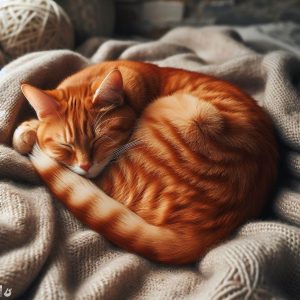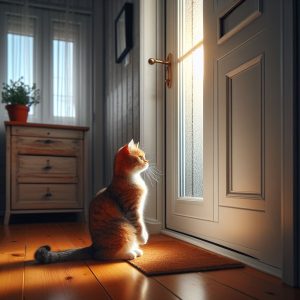As a cat owner, one of your biggest concerns is making sure your furry friend is happy, healthy, and properly cared for. But what happens if an emergency occurs and your cat is accidentally left without access to food or water? How long could they survive before the situation becomes dire?
It’s a scary thought, but important to be prepared for. When it comes to how long a cat can survive without food or water, there are many factors to consider. Read on for a complete guide to this critical question.
How Long Can a Cat Go Without Food?
Cats can survive surprisingly long without food – much longer than us humans! Here is a breakdown of how long kitties can go without eating:
- Adult cats – 2 to 3 weeks without food
- Kittens – 1 to 2 weeks without food
- Senior cats – 1 to 2 weeks without food
- Sick cats – Less time due to vulnerability
The key is that cats can live off of their fat and protein stores for an extended time. A healthy, full grown cat that suddenly stops eating may experience:
- Week 1 – Minor weight loss of 1 to 2 pounds, begging for food
- Week 2 – More significant weight loss up to 5 pounds, lethargy and weakness
- Week 3 – Danger of hepatic lipidosis from fat metabolizing incorrectly
Tip: Kittens and Senior Cats at Higher Risk
Kittens and senior cats have less fat stored and higher caloric needs, so they cannot survive as long without food. Kittens under 6 months old may only make it 1 week before health risks become severe. Monitor them closely and seek veterinary care if they go more than 2 days without eating.
Older cats with underlying illnesses also become vulnerable much quicker. Check on elderly cats frequently and feed foods designed for their age to keep their strength up.
What Happens When a Cat Stops Eating?
When deprived of food for multiple days or weeks, cats will begin breaking down fat and muscle to survive.
Here is the feline starvation process:
- 12 hours after eating – Blood glucose drops and ketones form from fat breakdown
- 36 hours – The body switches to primarily using fat for energy
- 3 days – Significant protein breakdown from muscle tissue
- 1 week – Rapid fat mobilization and weight loss accelerates
- 2+ weeks – Hepatic lipidosis and muscle wasting result
While a short fast won’t harm an adult cat, prompt veterinary care is crucial if they go longer than 3-4 days without food. Kittens, elderly cats, and those with medical conditions need evaluation much sooner.
How Long Can a Cat Survive Without Water?
Now let’s discuss how long a cat can live without water. This is even more crucial to monitor than food intake.
Here is how long cats can survive without any water source:
- 2 to 3 days – Dangers of dehydration worsen and can be fatal
- Up to 1 week – Accidental scenarios of surviving this long are rare
- 10 to 14 days – Very unlikely to live this long without fluids
Water deprivation becomes life-threatening for a cat much sooner than food deprivation. While 3 weeks without food is possible, a cat will begin showing signs of dehydration after just 2 days without water.
Some factors that influence survival times without water include:
- Age – Kittens and senior cats have lower reserves
- Weather – Hot temperatures accelerate dehydration
- Activity Level – More active cats require more fluids
- Health Status – Ill cats dehydrate quicker
What Happens When a Cat Has No Water?
When the body lacks water, it tries harder and harder to conserve any fluids it can. Here is what happens during feline dehydration:
- 12 hours – Early signs like dry mouth and eyes
- 24 hours – Panting, lethargy, and sunken eyes
- 36 hours – Dangerously high heart rate and fever
- 48 hours – Little urine production, recumbent position
- 72+ hours – Seizures, organ failure, and coma
aggazzio table pee output
| Hours Without Water | Urine Output |
|---|---|
| 12-24 hours | Decreased |
| 24-48 hours | Very minimal |
| 48+ hours | None |
The takeaway is that water is absolutely crucial for cats’ survival. They cannot go more than 2-3 days realistically. To maximize their chances, leave multiple fresh water sources out at all times.
Signs of Dehydration in Cats
Be vigilant for these early symptoms of dehydration in cats:
- Dry or sticky gums and mouth
- Sunken eyes
- Lethargy and weakness
- Skin tenting – when pinched, it slowly retracts
- Panting
- No interest in food
- Small amounts of dark urine
Later symptoms include:
- Collapsing or inability to stand
- Seizures
- Low body temperature
- Rapid heart rate and respiratory rate
- Coma
Tip: Conduct a Dehydration Test
Gently pinch your cat’s skin and see how quickly it flattens out again. If it takes longer than 1 second to retract, they are dehydrated. Immediately provide wet foods, broths, and fresh water. Call your vet if it does not improve promptly.
Catching dehydration early makes all the difference. Be proactive about checking for symptoms daily, especially in high risk situations where water access is limited.
Providing Water to a Dehydrated Cat
Once you identify your cat is dehydrated, taking these steps can help replenish their fluids:
- Give fresh, clean drinking water in multiple bowls. Change it 2-3 times per day.
- Offer canned/pouch foods with high moisture contents.
- Try lukewarm broths without seasoning like chicken or tuna.
- Use a plastic syringe to give small amounts of water slowly.
- Consider adding some tuna juice or chicken broth to dry food.
- Treat with cat milk or nutritional gel supplements.
Avoid cow’s milk as most cats are lactose intolerant. Do not try to force large amounts of fluid as that risks aspiration pneumonia. The goal is to get your cat rehydrated enough to seek veterinary care for bloodwork and IV fluid administration.
Reasons Cats Stop Eating or Drinking
There are many possible reasons for inappetence or lack of drinking in cats:
- Dental disease making chewing painful
- Nausea from illnesses or medication side effects
- Dehydration and electrolyte imbalances
- Kidney or liver failure leading to toxins building up
- Cancer or tumors causing digestive upset
- Hyperthyroidism increasing metabolism
- Depression or anxiety from stressors
- Neurological issues like dementia in senior cats
Any changes in food or water intake in cats should be evaluated by a veterinarian promptly. Bloodwork and urinalysis are key to uncovering underlying disease. Treatment depends on the cause but may include:
- Pain medication for dental problems
- Anti-nausea drugs
- Antibiotics for infection
- Fluid therapy and electrolyte correction
- Kidney disease diet
- Anti-thyroid medication
- Appetite stimulants
- Force feeding or feeding tube
With aggressive care, most cats can recover and regain their appetite and interest in food. But the sooner treatment begins, the better the prognosis.
Where to Look for a Missing Cat
If your cat suddenly disappears and is accidentally left without food or water, try searching in these common areas:
- Inside appliances like dishwashers, washing machines, dryers
- Under beds and furniture
- Inside closets, cabinets, and cupboards
- Vehicle engines or wheel wells
- Small crawlspaces and openings
- Neighbor’s garage or shed
Also:
- Check fences and gates for holes or ways they could escape
- Listen for meowing and distressed noises
- Look in bushes, trees, and under decks
- Ask neighbors to check their property too
- Post flyers and contact local vets/shelters
Knowing where to look can help you locate your cat faster if they become trapped or stuck somewhere without access to necessities. Time is of the essence, so move quickly!
What to Do If You Find Your Missing Cat
If you are fortunate to locate your missing cat, follow these tips:
- Approach slowly and gently to not startle them.
- Check for signs of injury and illness. Seek emergency vet care if critical.
- Wrap cat in a blanket and transport safely to your veterinarian.
- Do not overwhelm with food. Let the vet check for dehydration first.
- Ask the vet about giving small amounts of water right away.
- Discuss nutrition plan for reintroducing food slowly.
- Monitor for side effects like diarrhea or vomiting.
- Strictly follow vet instructions for recovery care.
- Give your cat plenty of love and relief that you found them!
With veterinary support and attentive aftercare, even a cat lost for 1-2 weeks has hope for a full recovery. Never assume it is too late to get help.
When to Consider Euthanasia for a Starving Cat
Despite your best efforts, there may come a point where recovering from starvation is sadly not possible for your cat. Indicators that humane euthanasia may be kindest include:
- No interest in food or water after 1+ week
- Unresponsive to medical treatments
- Failing organs or critical bloodwork values
- Little to no urine production
- Severe collapse and inability to stand
- Difficulty breathing and severe weakness
- Loss of 20% or more of body weight
No owner wants to make this choice. But sometimes letting go is the most compassionate option. Discuss all concerns openly with your veterinarian.
Prevention Tips for Pet Owners
While we hope emergency starvation situations never happen, smart prevention helps minimize risk:
- Microchip your cat for easier identification if lost
- Ensure your home has no access dangers like loose screens
- Consider a pet sitter or kennel when traveling
- Leave out automatic self-feeding and watering bowls when away
- Conduct regular home searches for hidden cats
- Check-in daily on food intake and litter box use
- Keep vet visits up-to-date to catch concerning symptoms
Avoid lapses in care by staying organized and proactive. With prevention, you can help keep your feline companion happy and healthy for many years.
Conclusion
Hopefully this guide gave you a better grasp on how long cats can go without food or water. The key takeaways are:
- Healthy adult cats can survive 2-3 weeks without food, but only 2-3 days without water
- Monitor cats closely and call your vet if they go even 1 day without drinking
- Kittens and elderly cats cannot go as long without sustenance
- Know the early warning signs of dehydration and starvation
- Provide fresh water constantly and leave food out just in case
- If your cat goes missing, search thoroughly and seek medical care right away
- With prompt veterinary treatment, most cats can fully recover and regain their appetite
As a loving cat guardian, staying informed and vigilant is the best way to avoid an emergency. But should the unthinkable happen, remember that cats are remarkably resilient creatures. Have hope, get help, and never assume a situation is hopeless. With your quick action and a veterinarian’s care, even weeks without food or water can have a happy ending.



